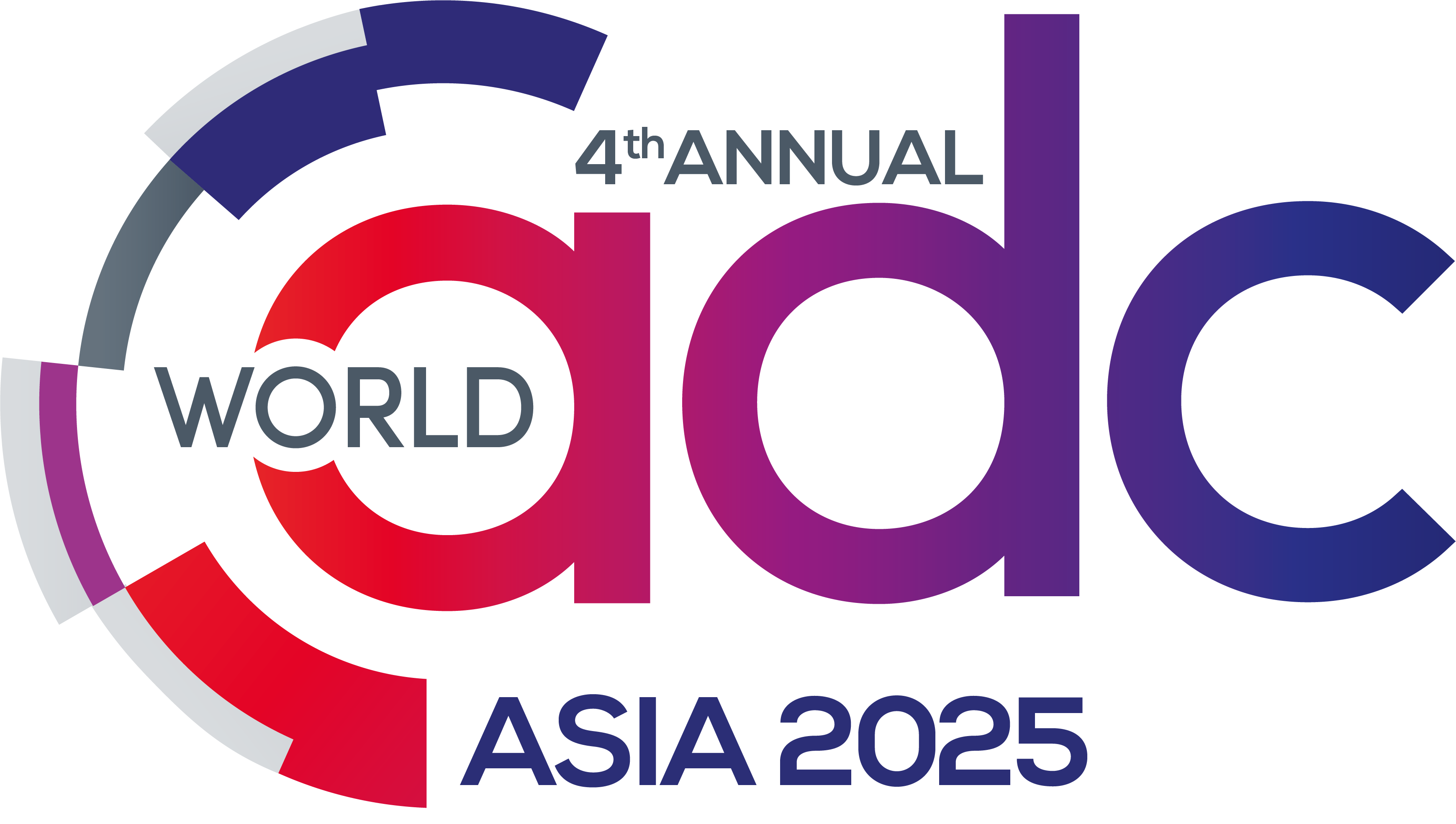Pre-Conference Workshop Day
Tuesday | June 10, 2025
컨퍼런스 이전 워크샵 데이
会前研讨会日
ワークショップデー
Introduction to ADCs Seminar Day
Synopsis
New to the ADC field? Get up to speed before the scientific program. This seminar day is split into three 90 minute deep dive sessions that will provide insights from years of research and lessons learned from failed clinical trials, leading to the approved ADCs and current innovations. Led by experts, these comprehensive sessions will combine presentations, case studies and interactive discussions to help to establish a solid understanding of the key elements in ADC discovery and early development.
8:00am Check In & Refreshments
Exploring Early Learnings in the Development of ADCs to Supercharge the Future of ADC Design & Development
9:30am Lessons Learnt & Insights Gained Within ADC Design & Clinical Development
Synopsis
- Explore the pivotal discoveries that enabled early ADC programs to move past initial setbacks. By understanding these foundational lessons, you’ll gain valuable context for designing more effective ADCs and navigating potential hurdles with confidence.
- Understanding the key insights that enabled early investigators to overcome the initial challenges that hindered early ADC programs
- Gaining familiarity with the fundamental early learnings that inform ADC design
10:30am Morning Break & Networking
Learning ADC Chemistry Basics – Examining the Role of Payload, Linker & Conjugation Site in ADC Design
11:00am Navigating Linker, Payload & Conjugation Site Selection
Synopsis
- Optimize your ADC development by understanding how linker chemistry, payload selection, and conjugation sites influence efficacy and safety. This session will provide a structured approach to evaluating payload choices and refining ADC design for improved therapeutic outcomes
- Evaluating payload choices for ADCs
- Reviewing linker design chemistry considerations
- Understanding the impact of conjugation site selection on ADCs
12:30pm Lunch
Overview Key Biology Considerations for ADC Development
1:30pm Understanding ADC Biology and Informing Target Selection
Synopsis
- Gain a deeper understanding of the biological principles that drive ADC effectiveness. This session will guide you through selecting the right targets, matching them with optimal antibody designs, and navigating key trade-offs to enhance therapeutic success.
- Gaining an understanding of the biological aspects of ADCs
- Selecting the most appropriate ADC target
- Matching ADC targets with antibody designs
3:00pm End of Pre-Conference Seminar Day
Bispecific ADC Seminar Day
Synopsis
Bispecific ADCs are showing rapid growth in Asia, with more developers than anywhere else in the world. Join our Bispecific ADC day to discuss how to optimally design them and select target pairs, as well as translating them to the clinic, whilst gaining a clearer picture of the benefits they can provide over traditional ADCs.
8:00am Check In & Refreshments
Design Principles for Bispecific ADCs with Optimal Target Affinity & Internalization Properties
9:30am Key Success Factors for Bispecific ADCs; Target & Format Selection
Synopsis
- Lessons from past ADC development, including: The importance of PK above TMDD (targetmediated drug deposition), payload with safety margin, and understanding of off-target toxicity
- Bi-specific target selection criteria: mechanistic synergy vs. target patient coverage
- Bi-specific format selection criteria: 2+2 vs. 1+1
10:00am Discovery & Non-Clinical Development of ABL206, A Bispecific ADC
Synopsis
- Investigating the synergistic cancer-killing effect of targeting two different markers on cancer cells
- Exploring non-clinical data from ongoing bispecific ADC development at ABL Bio
- Highlighting the benefits of bispecific ADCs for specific target combinations
10:30am Morning Break & Networking
Transitioning Bispecific ADCs from Concept to the Clinic
11:00am Design and Evaluation of BsADCs – Key Attributes Contributing to the Efficacy & Safety of BsADC
Synopsis
- Discussing what to benchmark BsADC candidates against when assessing preclinical efficacy
- Differences in toxicity modeling for BsADCs versus monoclonal ADCs
- Navigating what to expect when entering the clinic with a BsADC compared to a monoclonal ADC
11:30am Bispecific Antibody-Drug Conjugates for Targeted Cancer Therapy
Synopsis
- Acquired resistance presents a major challenge to the development of ADC drugs, and dual targeting may be one solution to overcome it
- GenSci’s novel ADC technology platform and robust bispecific ADC pipeline;
- GenSci139, a highly differentiated and potential best-in-class EGFR×HER2 BsADC, for targeted therapy in multiple solid tumors;
- GenSci143, a highly differentiated B7-H3 x PSMA bispecific and potential best-in-class ADC, for the treatment of mCRPC
12:00pm VBC104: A First-in-class CD79b/CD20 Targeted Bi-specific Antibody Drug Conjugate (ADC) with Superior Efficacy vs 1st line CD79b ADC in DLBCL, RT, FL, MCL, MZL and Beyond
Synopsis
- The anti-CD79b ADC, Polatuzumab Vedotin (PV), has demonstrated significant clinical benefits in B cell lymphoma and is approved for the first-line therapy. However, there remains a strong unmet medical need for PV-resistant patients and those with Richter's syndrome
- VBC104 is a first-in-class bi-specific antibody-drug conjugate (ADC) targeting both CD79b and CD20. It has the potential to overcome tumor heterogeneity and shows consistent efficacy on tumor cells with different CD79b/CD20 expression profiles
- In vitro and in vivo data demonstrate that VBC104 exhibits superior efficacy compared to PV in both PV sensitive and resistant models, it also exhibits excellent tumor inhibition in PDX model of Richter's syndrome
12:30pm Lunch
Transitioning Bispecific ADCs from Concept to the Clinic
1:30pm Summary Discussion: Exploring the Benefits of Bispecific ADCs Over Traditional Monospecific ADC Approaches
Synopsis
- Join this closing roundtable session with your fellow speakers and attendees to break down the learnings from the day’s discussion. By exploring examples of how BsADCs can provide added value over monospecific ADCs and considering various factors such as target specificity, drug internalization and resistance, this is your opportunity to share your thoughts and ask the speakers final burning questions.
3:00pm End of Pre-Conference Seminar Day
*All presentations will be in English
